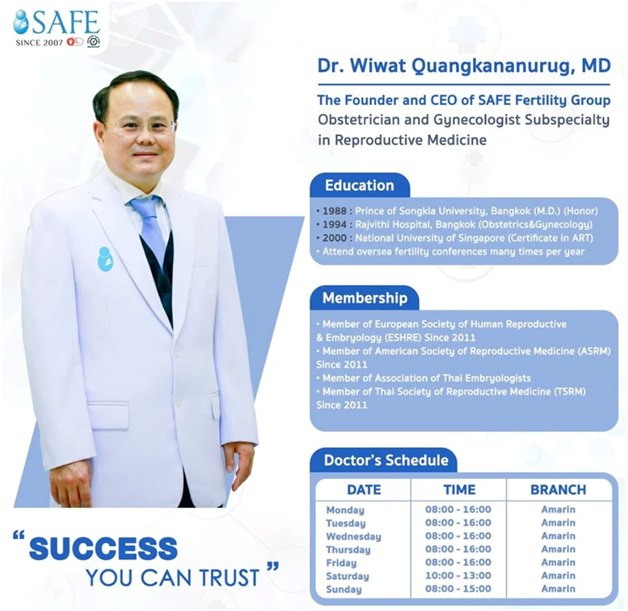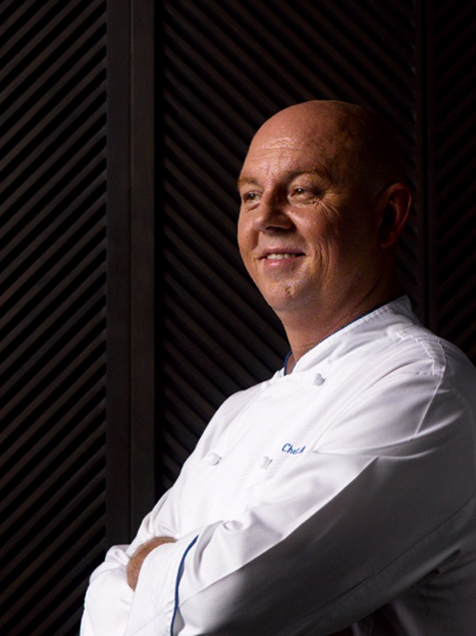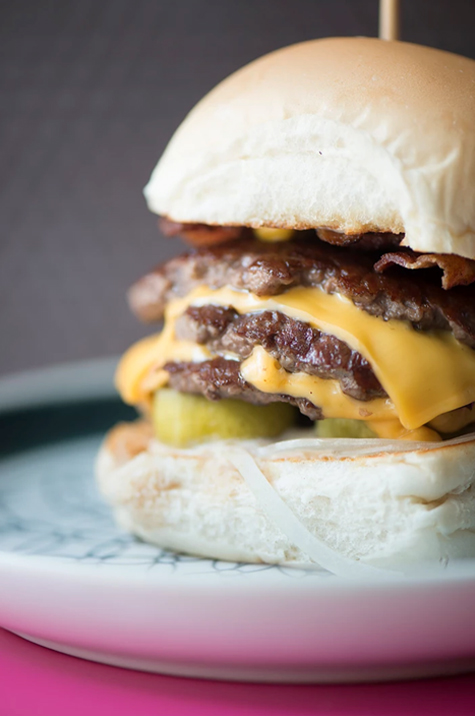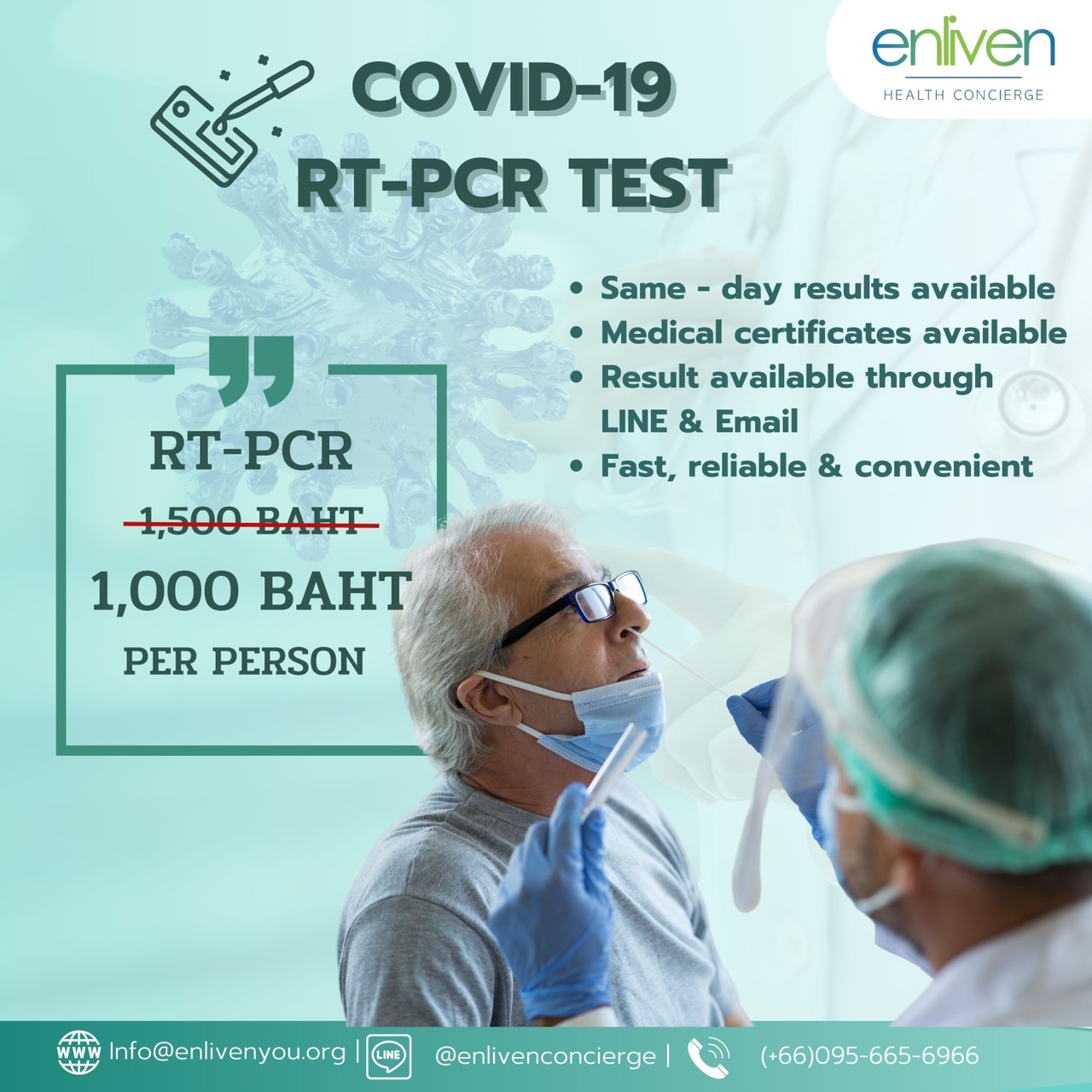
by Pirunrat Nathchayanonth (Yori), Client Coordinator | Feb 10, 2021 | Uncategorized
Here at Enliven one of the most common inquiries we receive is related to Women’s Health. Along with that comes the wish of many women to conceive and start a family. It is not always possible or easy for women to conceive naturally, thus we have done our research with regards to conception via in vitro fertilization (IVF) and gone into partnership with Safe Fertility Center, founded by Dr. Wiwat Quangkananurug – one of the most renowned doctors in this field in Thailand.
To learn more about IVF, Dr. Wiwat and his facility, have a read of our interview with him below:

How long have you been an IVF doctor?
I started to do IVF since 1999 and at that time worked in a hospital but after 9 years set up my own IVF center in 2007.
What exactly is IVF?
IVF is essentially a test tube baby. We retrieve the egg out from the body, fertilize with the sperm, cultivate and culture before putting it back into the women’s body. In the past, they were put back into the women during the same cycle, but since 2011 we moved to frozen embryo transfer (FET). The US, Japan and Australia adopted FET since 2010, we started only 1 year later.
Do you prefer fresh or frozen embryo transfers (FET), and why?
Definitely, FET because the success rate is higher, especially in women older than 35. It’s safer and there’s less chance to get ectopic pregnancy (which is a complication of pregnancy in which the embryo attaches outside the uterus. Signs and symptoms classically include abdominal pain and vaginal bleeding) and abnormal placentation. The baby’s weight is generally better and bigger.
Do you recommend performing embryo transfers on the 3rd or 5th day?
Since 2008 we moved from 3rd day to 5th day and found the success rate is much higher.
What makes someone a candidate for IVF? When is IVF recommended?
If someone is married 1 year without contraception and unable to conceive. Women older than 35 years old. Men with low sperm count and/or poor sperm quality. Essentially anyone experiencing infertility.
How does someone prepare for IVF?
You have to make the body strong by exercising and having a good work-life balance. Also, you must check your body’s micronutrient levels and supplement what’s missing.
Why choose SAFE as your destination for IVF?
We’ve been in the IVF industry for 20 years. We have a robust process in all parts of the clinic starting from registration, personnel, laboratory, doctors, equipment, safety and success rate.
How does SAFE differentiate from other IVF centers in Thailand?
The key is that we are a dedicated and luxury center focusing on the client’s privacy along with high success rates. All our clients will have a personal assistant to accompany them pre and post-treatment and be available to them at all times.
What accreditation and awards has SAFE received?
We are the first IVF Clinic in Thailand:
- to receive accreditation by the Reproductive Technology Accreditation Certification (RTAC) of the Fertility Society of Australia (FSA) and New Zealand since 2015
- to use the Embryo Scope in our own laboratory since 2012
- for chromosome testing technology (illumina-NGS) since 2014
- for Kyromapping since 2016
- to be certified by the European Society of Human Reproduction and Embryology (ESHRE) since 2014
What are the success rates at Safe?
If the patient comes under 40 years old, the success rate is 90% (3 times), 80% (2 times), 70% (1 time). 9 out of 10 will get success with us.
Now if anyone is interested in conception via IVF, Dr. Wiwat and his team are the way to go!
Contact us for more information.
Interview led by Devi Bajaj
Executive Director of Enliven Concierge
#EnlivenConcierge#WomensHealth#IVF#MedicalTourism#Bangkok#Thailand
Interview led by Devi Bajaj
Founder and Director of Enliven Health Concierge
by Pirunrat Nathchayanonth (Yori), Client Coordinator | Jan 15, 2021 | Uncategorized
Last year before lockdown I went to Muscat, Oman, and my experience reinforced why Thailand is such a great place for medical tourism, or healthcare treatment in general.
We were staying at the W Hotel where a wedding was being held, and the bride wasn’t feeling 100% so we went to the concierge to see what could be done to help her. It wasn’t life threatening, but the girl wanted to be cared for by a medical professional to ensure that everything was fine, preferably at the hotel for her convenience. Essentially she was exhausted and all she wanted was an IV booster to give her energy.
Don’t get me wrong, the concierge team at the hotel was helpful, but because it was a Friday morning in a predominantly Islamic state (Friday, Jumuʿah in Arabic, is the holy day for Muslims. Jumuʿah comes from the same root word as gather and congregation. On Fridays, Muslims attend a special prayer in the afternoon called the Jumuʿah prayer. You can find more information about this here), the in house medical team of the hotel was off duty and everyone we tried to call was either not answering or not available.
As the concierge team didn’t have anyone in house to support, they recommended we call a few hospitals including Muscat Private Hospital. So the very helpful concierge staff dialed the hospital and when someone finally answered the person on the other end of the line said she will connect us to emergency as we called during prayer time and most of the staff including physicians were unavailable. We understood that and expected that because we were being put through to the ER that someone would answer our call within a few seconds, okay even a few minutes. Boy were we wrong. The concierge stayed on the line for almost 7 minutes and we were still on hold. At this point I told him to end the call and I will reach out to some of my own contacts in Muscat to see what can be done.
I got names of another hospital and two potential services which provide concierge/home care. The concierge at the W called all three numbers, and one was helpful. The person at the end of the line at the concierge care said they can arrange for an IV drip at the hotel if we can provide a doctor’s note recommending it. As we didn’t have access to a doctor at that time, we asked if she could suggest a doctor we could speak to that would be willing to come see the patient. She gave us a couple numbers but it was Friday afternoon so no one answered our calls. By now it had been more than two hours since we tried to find a solution for this dear girl and we hadn’t made any progress.
I called my friend who lives in Muscat and she said the best thing to do would be to take her to the hospital and a doctor will treat her there. Luckily the girl had enough energy at this time to sit in a car for thirty minutes to get to the hospital. Once she reached the facility the service was great and she received the IV drip that she wanted and she felt better.
After all this, I had a chat with my friend who said it is these experiences that result in outbound medical tourism from Muscat to places like Bangkok. Had this situation occurred in Bangkok, we at Enliven would have been able to sort it out within an hour. Yes, it is true that we have the network here to make it happen, but it is also true that if you called the ER at one of the top JCI accredited hospitals in Bangkok it is extremely unlikely that you would have to wait more than 7 minutes for someone to take your call. Bangkok is accessible to all for medical care and we at Enliven are here to service you 24/7.
Written by Devi Bajaj
Founder and Director of Enliven Health Concierge
#EnlivenConcierge#MedicalTourism#Bangkok#Thailand
Information compiled by Devi Bajaj
Founder and Director of Enliven Health Concierge

by Pirunrat Nathchayanonth (Yori), Client Coordinator | Jan 20, 2020 | Uncategorized

Chet Adkins, Chef/Owner of JUA Izakaya and Little Market is a dear friend and one of our favorite chefs in Bangkok. He knows how to make meals that are extremely high in quality, wholesome, and delicious. One fine Saturday night, while enjoying his poke bowl alongside the best burger in Bangkok, we started chatting about the food industry and how everyone is moving to healthier choices. This is when I decided he would be the perfect person to interview about this topic as he loves food as much as my husband and I do combined (now that’s a lot of love) but he also understands the importance of taking care of himself.
Have a read of our discussion below and feel free to leave comments with your opinion on this topic.
As a chef with restaurants focused on yakitori and cheeseburgers, what do you think about the global gravitation to a plant based diet?
I think there should be balance. If we as humans want to achieve balance in life as well as on earth there must be balance. If we all ate only plants the ecosystem of the earth would be unbalanced. The same goes for eating meat. Everyone can’t eat just one or the other. I also think the way big corporations are marketing what they call plant based meat are basically feeding people super processed food. This food is as bad or worse than eating fast food (which in its definition is horrible for your body).

I have a HUGE sweet tooth and after endless research that shows sugar is essentially the devil, I’m really trying to be more conscious of the amount of sweets I intake. In your opinion, what are the “healthiest” natural foods I should have to satisfy my craving?
I always eat fruit for my sweet tooth. If you choose the right fruits they don’t contain as much sugars as most desserts you would buy somewhere. Fruits also have many different health benefits including dietary fiber, vitamins, anti-oxidants and nutrients. Thats why I will eat a pint of blueberries before a piece of cake.
There are so many people in the world with allergies and sensitivities to certain foods, do you notice the number of people with special requests increase in your customer base? If so, what are the most common foods that your clients are allergic to, and how do you substitute without compromising in flavor?
My girlfriend has a few major allergies so with that being said lately I have been thinking of her when I create new dishes. I have compassion for people who can’t eat certain things and do my best to cater to their needs by modifying a dish to suit the requirements.
Most people have common allergies like wheat, dairy, nuts etc. If you start creating a dish with this in mind there is no need to substitute, its already designed not to have these ingredients and will be as tasty as one with them included. Sometimes you just have to think of another source for that umami you are looking for to compliment the dish.
What are your thoughts on the concept of “food as medicine”?
I believe there needs to be much more research done on this. Indigenous people have been doing this for many centuries. I do know that when you are feeling like you’re coming down with a cold you can use certain food as a defense against it with foods high in vitamins to boost your immune system. I think that food directly relates to health and your body will also crave what it needs when it needs it.
Sweet or savory? Which is worse for the human body, salt or sugar?
Your body needs both to survive. The key here is also balance. Not eating too much of either is best. I would say the sugar is worse, its in everything and hard to control intake. Too much of anything is not going to be good for you.
If there was one so-called unhealthy type of food or dish that you would never live without, what would it be and why?
Noodles! I can’t go a day or two without eating them as I love them so much. Living in Thailand it’s hard to not eat them for me. I mean there is such variety that I could eat 10 different types a week and not get sick of them. They are my biggest weakness!
What is your advice regarding eating healthy to people who live to eat?
My advice would be to try to eat a variety of healthy foods all the time and save your big high calorie meals for eating out. Restaurants (most don’t care how much butter, sugar, salt etc. they put in their food) are trying to make the food so good that you can’t get enough of it. If you eat out all the time you should choose things that are as healthy as possible and save yourself for you guilty pleasures that you can’t live without. Happy Eating!! Stay Healthy!!
Essentially, Chet says a balanced diet is key. If you are interested to learn more about how to achieve and maintain a balance diet we will be happy to put you in touch with one of our experts in the field of nutrition and/or gut health.
Interview led by Devi Bajaj
Founder and Director of Enliven Health Concierge
Below are links to some articles related to the topics above:
#EnlivenConcierge#HealthyEating#Nutrition#Wellness#PlantBasedDiet#SugarFree#FoodAllergies#FoodSensitivities#Balance#Bangkok#Thailand
by Pirunrat Nathchayanonth (Yori), Client Coordinator | Nov 9, 2019 | Uncategorized
I’m a person focused on having a routine and I believe this keeps me both physically and mentally healthy (and sane). I aim to intermittently fast for at least 16 hours a day for 5 days a week (to let the cells in my body rest, rebuild and repair), workout 3-5 to times a week, and sleep at least 6 hours a night.
My husband is in an entirely different field of work. His event management job requires him to be on his feet for 12-16 hours at a time, sleep late and eat only when (or if) he gets a break. As a result he was often fatigued and would come home from work sneezing or with the sniffles.
I was determined to find a way to make him feel better, without it being complicated or taking too much of his time because I knew if I told him it would take longer than an hour every couple weeks that he (and I) wouldn’t succeed in the long term. After reading up on my favorite online portals for healthy living (I’ve listed a few of them at the bottom of this post for your reference) and discussing with colleagues in the field of health and wellness, I decided what he should try to do to make him feel better. There was a consensus across the board that he needs to replenish the nutrients and vitamins in his body, so I suggested direct insertion of these essentials into his blood stream intravenously.
The most popular IV for rejuvenation across the world is called the “Myers’ Cocktail” developed by Dr. John Myers of John Hopkins Medical School. It is compromised of the following components:
He was nervous at first, but after speaking to the doctor who explained the benefits of the IV (but making it a point that this is not a long term solution, however ensured that it can help in the interim while he moves towards a healthier lifestyle), he said he’ll give it a shot. On the day of the first drip he had a slight fever and was feeling very tired which resulted in a good night’s sleep and more energy the next day and coming weeks. IV drips work by increasing the blood concentration of several essential vitamins and minerals beyond that which can be achieved when supplementing orally. For example, Vitamin C given intravenously has been found to reach blood concentrations more than 50 times greater than what can be achieved when given orally. (https://theremedyroom.com/2014/01/what-is-a-meyers-cocktail/), therefore definitely helping immunity if needed.
With the doctor’s recommendation we also started him on melatonin supplements for when he flies (he has major anxiety and this helps to calm him down), and to ease his mind and put him to sleep easier for the nights when his mind is racing. He used to have terrible acid reflux problems and applying intermittent fasting to his lifestyle has essentially cured that. Furthermore, a family member suggested that he start taking metamucil (https://www.metamucil.com/en-us/articles/Fiber-101/metamucil-faqs) which is a plant-based fiber supplement to aid digestive health (we’ll get more into gut health in an upcoming post, so stay tuned).
It’s been a couple months now and he generally seems to feel better from his lifestyle adjustments, and the occasional Myers’ cocktail. The main result is that it’s helped his immunity (he now rarely comes home with a cold) and makes him feel hydrated. It’s important to note that IV drips are not a substitute for healthy habits in your daily life—these should not be seen as quick fixes (https://www.wellandgood.com/good-advice/iv-drip-therapy-health-risks/).
Before getting into the habit of adding IV drips to your routine, ask yourself if you can obtain the vitamins, minerals and nutrients by having a well-balanced diet that meets your needs. If after trying that you don’t see any improvement, it may be time to check if your vitamin and micronutrient levels require supplementation. We have a team of specialists who can support if you reach to that point, or even if you’d like to ask some questions about your health and chat further so do feel free to reach out.
Written by Devi Bajaj
Founder and Director of Enliven Health Concierge
Some of our favorite Health & Wellness Portals and their thoughts on IV therapy:
#EnlivenConcierge#MedicalConcierge#IVDrips#MyersCocktail#Fatigue#IntermittentFasting#Melatonin#HealthyLiving#HealthyChoices#Bangkok#Thailand






